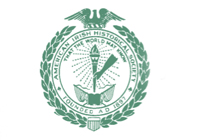Synopsis
1951, is the iconic "Happy Days" TV show colliding with small-town college football on the Great American Plains. More specifically, it is focused on:
a. A poor but basically honest student-athlete who was recruited and then romanced by a perennial cellar dweller team that was destined to eventually become a national junior college football dynasty. Buy the Book!
b. A little old whistle-stop of a junior college town where a guy could easily get an enviable reputation for doing very little, and a young coed could be ruined for life for doing a heck of a lot less. After all, this little town is located on the cusp of the American Bible Belt.
c. A minor junior college football coach who everyone believed was so dense that he could not pour urine out of a boot even if the instructions were printed plainly on the heel. However, after he finally assembled his first Alpha Team, he just kept on winning anyway. His aces in the hole were (1) an uncanny ability to lure troubled but blue-chip athletes into the institutionally wide, even community wide deceptions necessary to produce a winning team in a very tough league, and (2) maintaining plausible, implacable deniability.
d. The care and feeding of a high-strung herd of somewhat misunderstood student-athletes, all of whom were just trying to get by, or whatever seemed right at any given moment in time.
1951 can be ordered at www.amazon.com, www.barnesandnoble.com, www.iUniverse.com and at 1-800-288-4677
 Author Bio
Author Bio
David Daniel FermanBorn 8 April, 1933
Raised in a low-rent corner of Wichita, Kansas, during the Great Depression, Dust Bowl and WWII, Dave was a high school All-American in journalism. Dave paid his way through college by kicking footballs, rough necking in the oil patch, modifying airplanes at Boeing and painting airplanes at Beech Aircraft Company, and was a 17-year old bartended and bouncer in a honkey tonk roadhouse. During the Korean War, Dave was a U.S. Marine Grunt, an MP (military cop), a recruit DI (drill instructor) and a Marine pilot. After he crashed, burned, and nearly drowned in a Florida swamp, Dave served a tour with Naval Intelligence in the Middle East in 1955, mapping potential helicopter landing zones without the blessing of the visited countries and being shot at by both Israelis (at the Green Line in Jerusalem) and Arabs on the East Bank of the Jordan River. After college, Dave became a high school English and science teacher, but Beech Aircraft offered him double his teaching salary to write flight manuals, and he never looked back as he hit his stride as a marketing and Communications executive for Chrysler, LTV Aerospace and Lockheed Martin. When writing Erin Go Kill, Dave used several of his own experiences as literary fodder. After reading all of the official reports and relevant books that Dave could find, he toured the Irish Republic and Ulster in 1987 to swap sea stories and bawdy songs with IRA guerillas, young but determined British soldiers, and many of the usual suspects.
Neat Tidbits
In 1954, Dave was honored to be the first cadet pilot to be inducted as a colonel in the Confederate Air Corps which was then composed of active duty Marine and Navy fighter pilots who fought in the WWII battle of Guadalcanal as the Cactus Air Corps. In 1953, he was honored for bringing two towel-wrapped, reluctant sailors out of a raging barracks fire at the point of his bare bayonet. Dave founded the Project Payback charity for the Sisters of St. Joseph in Wichita. His freshman year in college (1951), disgusted with the athlete accommodations, Dave lived alone in a lean-to tent on the banks of the Walnut River for many weeks without missing a beat in the classroom or on the gridiron (read Dave’s 1951). Ten years after Dave sat down and talked with his long dead dad at age 44, he had no choice but to admit that something strange had happened. He finally worked up the courage to tell his readers that he had seen a ghost, so he wrote Ghosts That I Have Known as a civic duty. The beat goes on







